all s3 episodes air online at 7pm cst on the following dates, unless specified otherwise. To view the livestream, visit our website or our facebook page!
monday, march 2
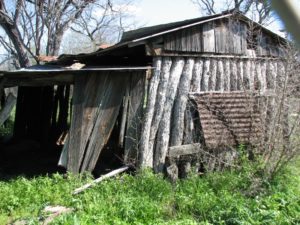 “season three premiere: photography, player pianos, & Paleohistory”
“season three premiere: photography, player pianos, & Paleohistory”
Following two successful seasons, URBAN-15’s Hidden Histories returns for Season Three! Our March episode will converse with local photographers Michael Nye and Ramin Samandari on the philosophical underpinnings of documentary photography; visit the workshop of instrument craftsman John Talbot, who repairs player pianos, juke boxes, and calliopes; and explore early Tejano architecture with archaeologists Sergio Iruegas and Melinda Tate Iruegas.
monday, APRIL 6
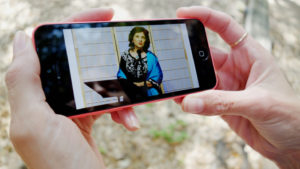 “Mega corazÓn 2020”
“Mega corazÓn 2020”
As an online broadcast, URBAN-15’s Mega Corazón has from the beginning prioritized poetry audiences that are distant, dispersed, and digitally available. Always ahead of its time, Mega Corazón now finds itself strategically well-positioned to inject a needed artistic infusion into our strange, new reality of social distancing.
In other words, Mega Corazón lives on, celebrating National Poetry Month with a literary livestream featuring San Antonio’s premiere performance poets—all of whom nimbly agreed to shift from live sets to self-filmed performances. Celebrating a hybrid San Antonio poetic tradition that combines street, classical, and slam performance styles, Mega Corazón promises to be frontal, improvisational, at times painful, and choreographed for a highly visual impact. This year’s Mega Corazón will take place on Monday, April 6th from 10am-1pm (youth focus, for those students now learning from home) and again from 6-10pm (for general audiences). All performances can viewed for free online HERE.
Poets confirmed to date include current San Antonio Poet Laureate Andrea “Vocab” Sanderson, former San Antonio Poet Laureate Octavio Quintanilla, and inaugural San Antonio Poet Laureate and former Texas Poet Laureate Carmen Tafolla; National Book Award finalist John Phillip Santos; nationally-recognized poetry slam champions Amalia Ortiz and Anthony “The Poet” Flores; National Poetry Month SA organizer Jim LaVilla-Havelin; “taco poet” Eddie Vega; Jazz Poets founder Eduardo Garza; conjunto masters Juan and Armando Tejeda; Rohn Bayes; Jacinto Cardona; Marisol Cortez; Génesis Linares; Jessica Tilton Zertuche; Natalia Treviño; Frances Treviño Santos; and Nathan Zertuche.
As part of our Hidden Histories series, Mega Corazón 2020 will also air a special poetry-themed episode focused on the history of the Young Pegasus youth poetry competition, a San Antonio literary tradition dating back to 1927. Episode will feature interviews and readings from past winners, including internationally-beloved author Naomi Shihab Nye; former San Antonio Mayor Henry Cisneros, and visual artist Alice “Pájara” Canestaro-Garcia; plus commentary and readings from literary legend Gregg Barrios.
monday, May 4
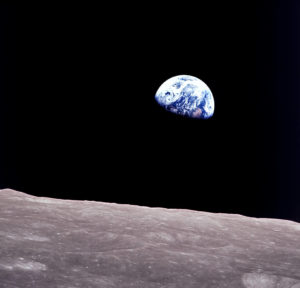
“Enduring Distance”
In a time of dire emergency, we are inescapably reminded of our fragility and resilience both, the disturbing inequities that persist within and across communities and, equally, our deep connections. “Pandemic,” after all, from the Greek pan and demos, means “all the people.” At such times, we depend on the insight and wisdom of visionary artists, writers, thinkers, and leaders to provide the guidance we need to survive and persist. In this month’s episode of Hidden Histories, we hear from three of San Antonio’s intellectual and spiritual elders: author Whitley Strieber; former councilwoman Maria A. Berriozabal; and futurist economist and journalist Chris Tomlinson. Not to exclude the insights of our youngest generations, we also preview our upcoming Best of Josiah Media Festival, talking to Festival manager Jonathan Anderson about the unique social commentary provided by youth filmmakers from around the world.
monday, june 1
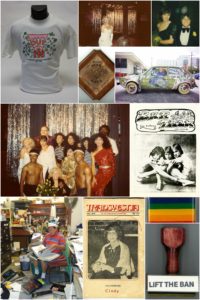 “Pride, proud, present: collecting san Antonio’s queer memorias”
“Pride, proud, present: collecting san Antonio’s queer memorias”
In honor of Pride Month, June’s episode of Hidden Histories explores the spaces that archive the history of LGBT life in San Antonio and celebrates the artists and activists who have made that history sing. We open with Melissa Gohlke, UTSA Special Collections Assistant Archivist, who curates one of the largest LGBTQ collections in Texas. From there, we interview Rebel Mariposa, radical restauranteur and owner of La Botanica, one of San Antonio’s most celebrated vegan restaurants and queer arts spaces. In between, we showcase the final public performance of the late and great Sterling Houston—playwright, musician, and Jump-Start Performance Co. actor—and debut a Los de Esta Noche tribute by Los MENtirosos, San Antonio’s premiere drag king troupe. We close the night with filmmaker Noi Mahoney, director of Hap Veltman’s San Antonio Country, followed by a screening of his documentary about one of San Antonio’s most famous disco-era gay clubs.
monday, july 6
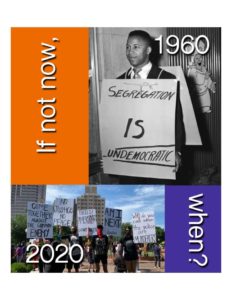 “If not now, when? longings for justice, songs of liberation”
“If not now, when? longings for justice, songs of liberation”
July’s episode of Hidden Histories responds to the national convulsions of grief and rage that have followed the brutal murder of George Floyd by officer Derek Chauvin, taking a knee for all Black lives lost to systemic racism. Bringing the issue of police violence to the local level, we hear from two generations of civil rights leadership in San Antonio on the question of where we’ve been and where we go from here: Mario Marcel Salas, former councilman, political science professor, and longtime racial justice activist; and Ananda Sunshine Tomas, one of the young activists centrally involved in organizing San Antonio’s recent Black Lives Matter protests. We also speak with renowned jazz trombonist Ron Wilkins, just recently released from the hospital after a two-month battle with COVID-19. Wilkins will open the show with a solo rendition of “The Star Spangled Banner,” while reigning San Antonio Poet Laureate Andrea “Vocab” Sanderson will perform an elegy for Breonna Taylor and hometown vocalist Aaron Marshall Taylor will close with a tribute to Sam Cooke’s “A Change is Gonna Come.”
Monday, august 3
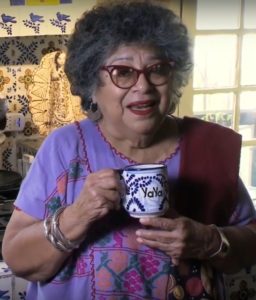 “Best by request: HIdden histories 2018-2019”
“Best by request: HIdden histories 2018-2019”
After a tumultuous first half of 2020, Hidden Histories pauses for a late-summer breath of reflection. For viewers who have only recently tuned in, our August 2020 episode will delve into the origins of and big ideas behind the series, highlighting our most thoughtful, insightful, and powerful interviews, guests, and performances from Seasons One and Two. Members of the Hidden Histories production team have picked their favorite segments—from visionary author Whitley Strieber and late musical legend Spot Barnett to Dr. Charlie Cottrell remembering his Southside neighborhood before the construction of I-37 to archival performances from San Antonio’s dance history—and more!
MONDAY, SEPTEMBER 7
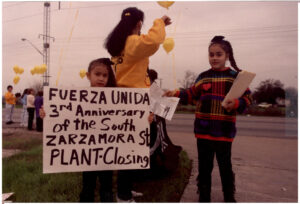 “Arts Jobs and Women Workers: A Labor Day Special”
“Arts Jobs and Women Workers: A Labor Day Special”
In honor of Labor Day, Hidden Histories will explore two critical worker histories in San Antonio. First is the impact of federal jobs creation programs for working artists—from the WPA projects of the 1940s which created some of the city’s best known landmarks to the CETA program of the 1970s and 80s, which allowed the Carver Community Cultural Center to hire 30 local artists to provide free performances and education to long-neglected schools and neighborhoods. Another pair of interviews honors the legacy of women’s skilled labor and organizing power, with Sylvia Reyna of the San Antonio Public Library’s Texana Department discussing the “labor” history held in the library’s collection of midwifery records and Petra Mata and Viola Casares celebrating the 30-year anniversary of Fuerza Unida, founded in 1990 when women workers rose up to protest the closure of three factories on San Antonio’s Southside. Finally, continuing our homage to Studs Terkel’s Working, we present a new collage of short film interviews with a range of San Antonio residents on one question: What was your first job?
MONday, october 5
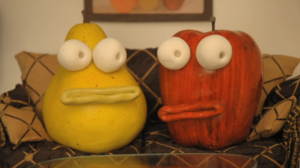 “The Gift of Vision: San Antonio Youth Cinema 2006-2016”
“The Gift of Vision: San Antonio Youth Cinema 2006-2016”
As an opening to URBAN-15’s 14th annual Josiah Media Festival, October’s episode of Hidden Histories delves into the rich local culture of youth media education that produced Josiah Neundorf, a talented filmmaker from San Antonio whose premature passing in 2006 inaugurated one of the longest running youth film festivals in the world. Beginning with Neundorf’s visionary work, we screen ten of JMF’s best local films by students attending San Antonio high schools and media arts programs. We also interview Josiah’s father Marcus Neundorf on the festival’s origins and impacts, as well as film educator George Ozuna on his involvement in the creative ferment that launched the youth media movement in San Antonio.
Schedule of films includes:
The Gift of Vision: Film Montage by Josiah Neundorf (Northeast School of the Arts / Boston Museum School)
The Receptionist (2011, Narrative)
Nicholas Wachter, Age 17, Communication Arts High School
Fresh Fruit (2007, Animation)
Ed Kelley and Brenden Cicoria, Age 17, St. Mary’s Hall
El Gran Machin (2009, Narrative)
Aaron Richmond-Havel, Age 17, Northeast School of the Arts
Le Violoniste (2010, Animation)
Michael Esparza, Age 17, Film School of San Antonio at Harlandale High School
R/G/B (2014, Experimental)
Alejandro Peña, Age 18, Say Si
Picture Day (2016, Narrative)
Rogelio Pedrazo, Age 17, Film School of San Antonio at Harlandale High School
Of Gods and Bells (2016, Documentary)
Alexia Salingaros, Age 18, St. Mary’s Hall
Dolly Wants a Minion (2010, Narrative)
Lena Ozuna, Age 17, San Antonio School for Inquiry and Creativity
Reversal (2013, Animation)
Aaron Matthew Gutierrez, Age 20, University of the Incarnate Word
monday, november 2
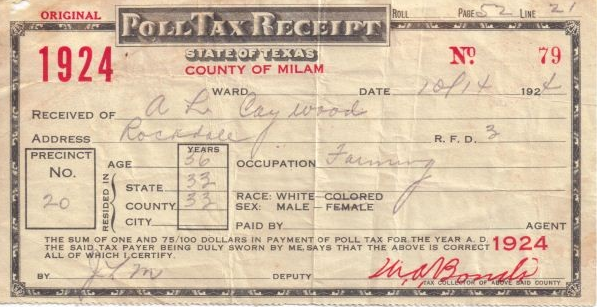 “voting rights, voting wrongs: an election’s eve incantation”
“voting rights, voting wrongs: an election’s eve incantation”
On the eve of a monumental election, November’s episode of Hidden Histories delves into local legacies of enfranchisement and disenfranchisement. Recognizing the centennial anniversary of the passage of the 19th amendment, we talk with Dr. Rachel Gunter on the racial and class complexities of the suffrage movement in Texas, which expanded voting rights primarily for Anglo middle-class women even as Black and Mexicana women, immigrants, and other groups remained largely disenfranchised until the 1960s. Picking up on these exclusions, we also speak with Dr. Henry Flores on historic voting rights struggles in San Antonio—against the poll tax, literacy tests, and racial gerrymandering—and screen a short documentary from the Josiah Media Festival archives on the fight for single member district voting in San Antonio. Finally, as artistic blessing and invocation, performance artist Jess Mahogany reads Evie Shockley’s poem “Women’s Voting Rights at One Hundred (But Who’s Counting?).”